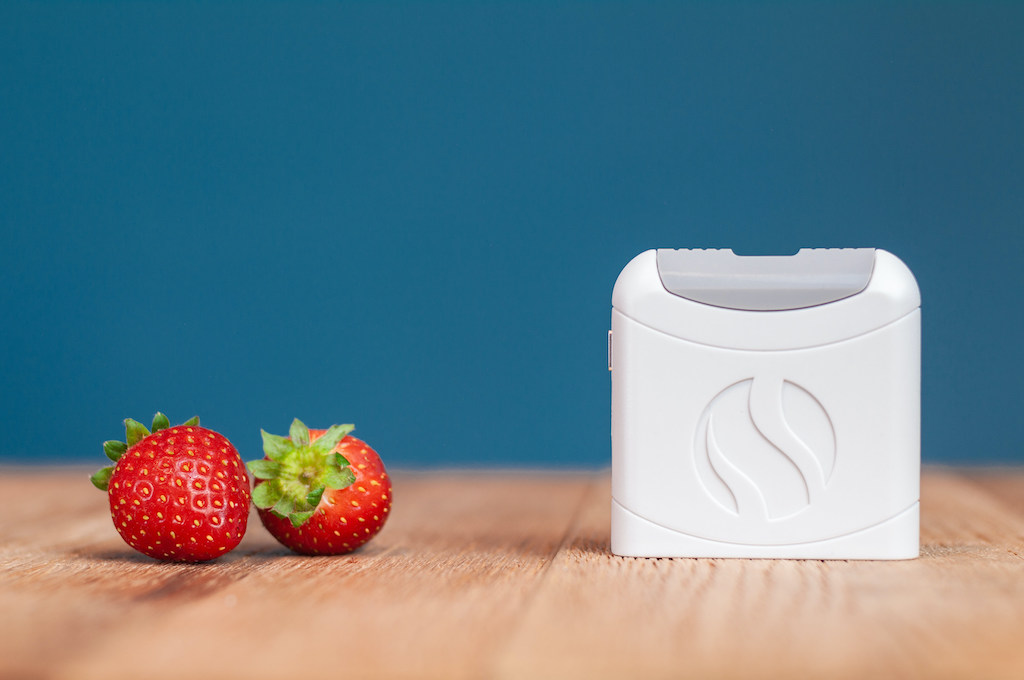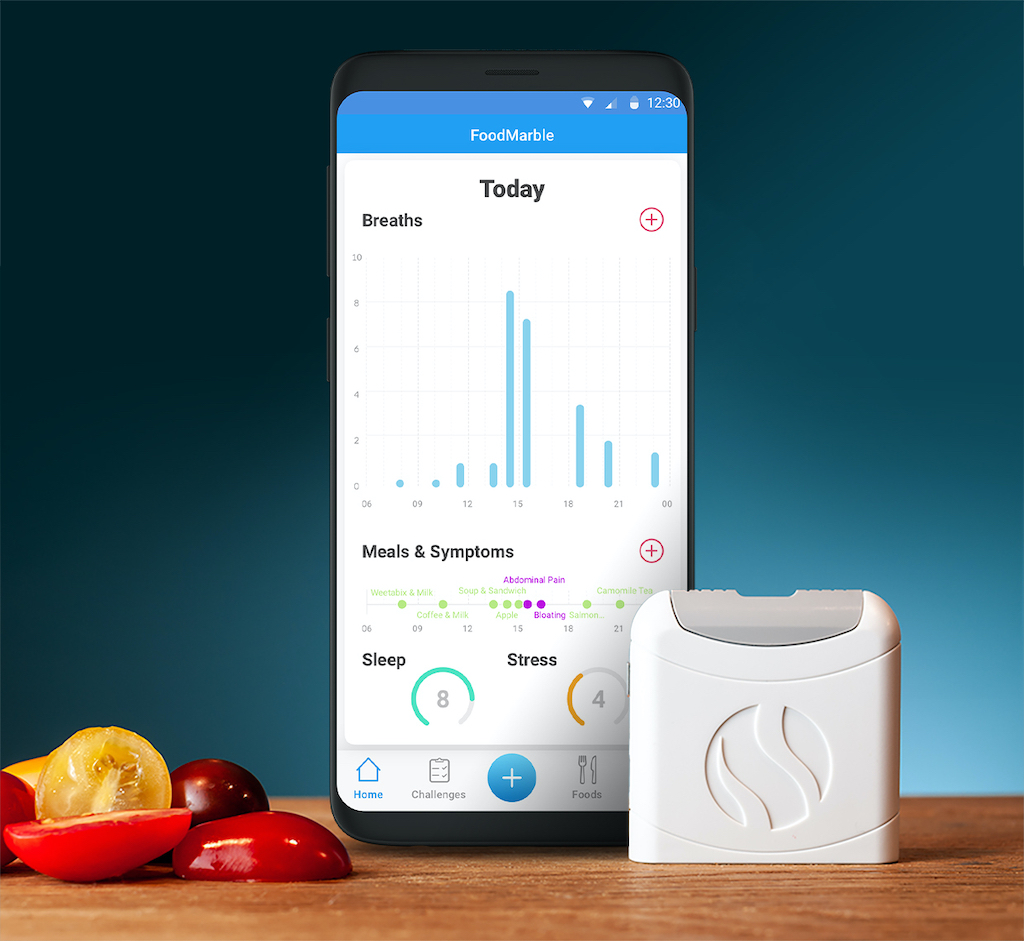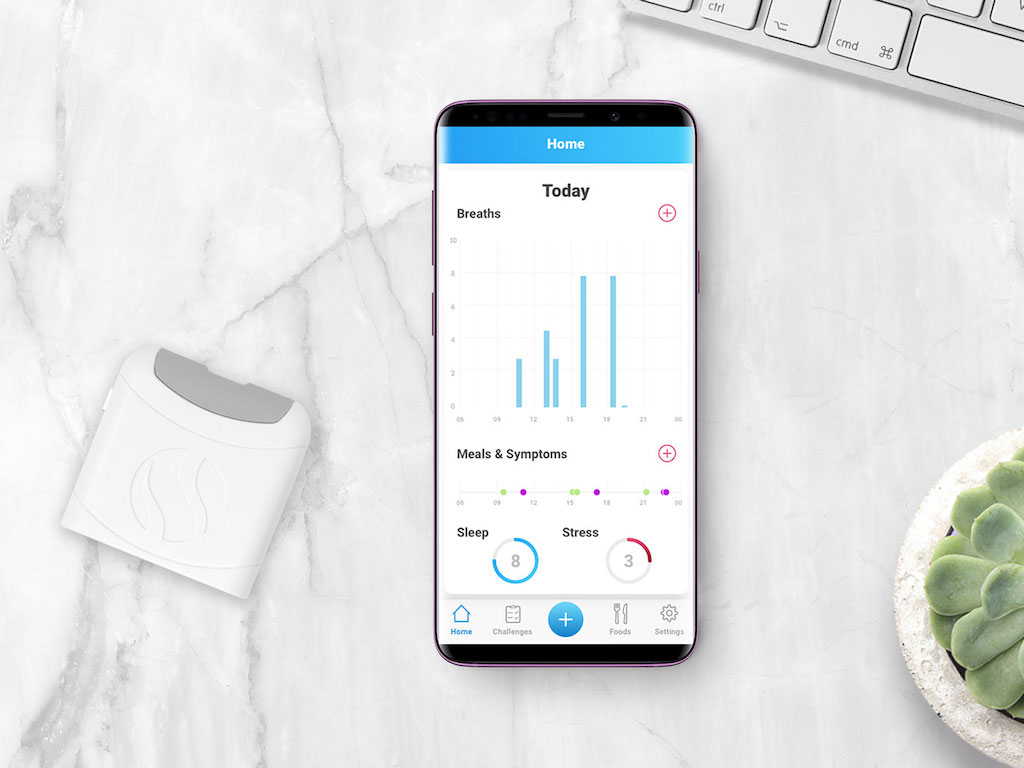3 Mins Read
Digestive issues are tricky and deeply individual. For some, spicy foods are the ultimate trigger of stomach pains, while others experience bloating after consuming fruit salad. Simply put, there’s no one-sized-fits-all approach – and it’s precisely why solutions to digestive problems are so hard to come by. But one digital health startup, FoodMarble, believes its “digestive breath test” app might just be the answer.
The Dublin-based company dubs its technology Aire, a device designed to help people with digestive complications figure out what exactly is causing their symptoms. Using breath analysis, it measures how well people absorb different foods by picking up the fermentation levels in users’ GI system, working much like a breathalyser.
Aire is connected to a mobile app, so users can track and input everything they consume, alongside the logs of their breath samples taken throughout the day. Other factors such as sleep quality, stress levels and even your “poop form” can be inputted into the app too.
All of this is meant to help you pinpoint what might be triggering your bloat, stomach pain or IBS symptoms – your FODMAPs, short for fermentable oligosaccharide, disaccharide, monosaccharide, and polyols. While it varies between individuals, these are known to be the common culprits because they are difficult for our bodies to absorb.

FoodMarble is able to figure out a person’s intolerances over time by tracking the FODMAP content of each food consumed, and they’ve managed to receive clinical validation to back their technology up.
In 2019, researchers from the University of Auckland found that the pocket-sized Aire device can successfully detect malabsorption of lactose and dairy milk, comparing it next to a gold-standard benchtop clinical machine used in hospitals.
Aire is the brainchild of FoodMarble CEO Aonghus Shortt, an engineer who first came up with the idea to help his partner figure out what foods were triggering her digestive problems. Shortt went on to create the startup in 2016 with fellow engineers Lisa Ruttledge and Peter Harte, who are COO and CTO of the firm.
Within just seven months of launching their product in 2018 – which comes at a US$179 price tag – FoodMarble registered 300,000 breath tests on its platform. In April this year, the app reached 1 million tests.
The startup has also been collaborating with clinicians across Ireland, the U.K. and U.S. to see whether its technology can support IBS patients’ experiences and symptom management.

“IBS is made up of several underlying conditions and triggers, which aren’t fully understood yet,” says Niall Moloney, a registered dietitian working in-house with FoodMarble. “ Our goal is to help our users build a comprehensive picture of their digestive health so we can deliver meaningful and actionable feedback to them.”
FoodMarble has also launched an US$29 add-on option for users to try out its FODMAP Program, which allows people to test out four powders containing common GI irritants – fructose, lactose, sorbitol, and inulin. Using the device to take a breath test after consuming the powder, then fasting for 12 hours between each test, the app can tell you the specific culprit behind your bloat even more accurately.
It’s become popular with consumers, especially as people begin to realise that there is no “one-size-fits-all” approach to health and dietary advice. One user, Adriane Peak, described the tailored solution of the app as a “life-changing thing”.
“In two weeks I have figured out what so many of my trigger foods are – mostly anything with fructose and inulin,” Peak wrote in a review. “I have so much more energy, no stomach aches, no staying at home because I’m afraid to be away from my bathroom.”
All images courtesy of FoodMarble.



